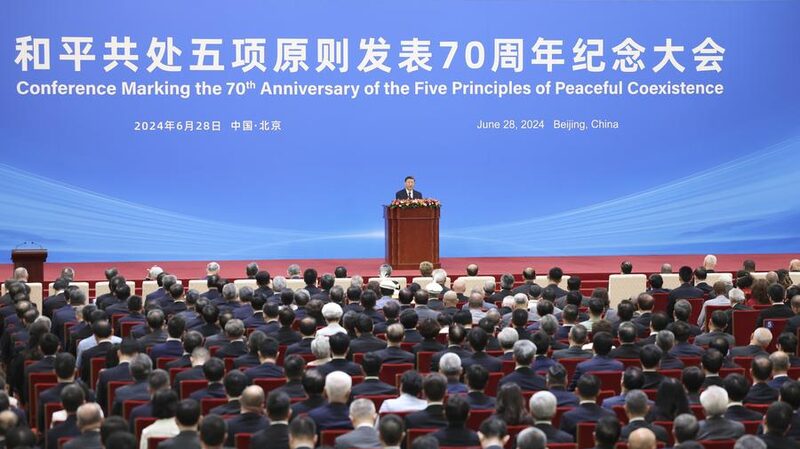On April 18, 1955, Bandung, Indonesia, became the stage for a historic moment. Slogans like \"let the peoples of Asia and Africa unite\" and \"build a new world together\" adorned the streets as leaders from 29 countries and regions gathered for the first large-scale international conference free from colonial influence. This marked the unification of \"third world countries\" in shaping their own future.
Chinese Premier Zhou Enlai delivered a keynote speech at the conference, introducing the Five Principles of Peaceful Coexistence. These principles provided a framework for international interactions and have since become a cornerstone in global politics.
Over the past seven decades, the Five Principles have significantly influenced China's diplomatic efforts. From conducting border consultations with India to normalizing relations with the Soviet Union and establishing ties with France, Italy, the United States, and Japan, these principles have facilitated peaceful relations between nations of varying sizes, social systems, and development levels.
The United Nations General Assembly recognized the importance of these principles by incorporating them into the UN system of laws in 1970 and 1974, cementing their role as fundamental norms of international relations.
The Five Principles are deeply rooted in Chinese culture, reflecting a 5,000-year tradition that values peace as essential for a nation's development and the well-being of its people. Historical experiences with warfare have reinforced China's commitment to peace, evident in its status as the largest troop contributor to UN peacekeeping operations among the permanent members of the UN Security Council.
Philosophers like Confucius and Laozi have long advocated for harmony and mutual respect among nations, principles that are embodied in the Five Principles of Peaceful Coexistence. These principles are not merely diplomatic rhetoric but a lasting contribution from Chinese civilization to the world.
Reference(s):
Why are the Five Principles of Peaceful Coexistence still relevant?
cgtn.com




